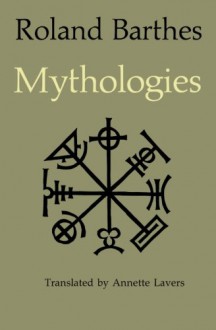 The Pet Whisperer by liliaeth
The Pet Whisperer by liliaeth
My rating: 2 of 5 stars
Read from April 05 to 08, 2014 — I own a copy, read count: 1
What a Horrifying and Disturbing Story! I have been forcefully defiled. Mind Raped!
I admit it does have some entertainment value, but the munching on humans killed me. I mean I love the angst and liked the wicked pet training, but.... PLEASE! DO NOT EAT PEOPLE! Argh!
Humans as main course on the dining table of Gods. *dying* Gods hunting humans as food, even the children aren't safe. *dies in agony* Keeping humans as livestock for their juicy meat. *am so dead* Some of luckier ones are kept as household slaves, and the luckiest are those pretty ones which the Gods kept as eye-candies aka pets. The pets aren't exactly safe from ending up on the table as well. Da fuq!
How I wish this story could just focus on the pet training and leave out the grisly stuff. Each time I think of it... I.... *pukes everywhere* The slaughter of innocents both angers and sickens me so much I could feel my soul burning at the atrocities happening at every turn of the story. The author is sure brave and daring but too over-the-top with the horror aspect, it squicked me out even knowing she might be trying to deliver her message on animal abuse and to encourage vegetarianism.
The thing is, this story is utterly disturbing and horrifying as the amount of outright cannibalism overshadowed the pet training aspect eventhough petplay should be the main focus of this story as per suggested by its title and blurb. I kept on reading this morbid tale because I couldn't stop until I find out what would happen to Dean at the end.
WARNING: You really can't unseen what you have seen. For sure this is NOT for the faint-of-heart unless you are into gore and cannibalism. Beware of being eaten alive while kicking and screaming even your soul aren't spared. If you could curb your curiosity, I would advice you to stay away from this. The blurb didn't have any warning on the extreme cannibalism. I did blame myself for not checking out the story tags throughly before diving into it.
I am pretty sure that title and blurb would potentially leads unsuspecting readers who are looking forward to some petplay fun with added bonus of the famous Castiel-Dean pairing into the darkest void of evil and then gets drown in human misery so great one would felt scarred for life; speaking from the view of a traumatized reader. I have no way out now, it's too late for me. Go safe yourself!
Da fuq I've just read. @_@;
I need fluff pronto!
THE RATING
I am giving this a 2 stars not entirely because of the disturbing nature of the in-depth cannibalism, it is also due to the quality of the writing itself. There are parts where the plots fails and the characters has OOC moments here and there. I am also deducting points for not staying focus on the promised petplay theme. To be clear, I did appreciate the parts on the pet training and the melding of multiple mythologies with modern religion.
To put it in other words, this story is as entertaining as an intense nightmare you fought to wake up from.
STORY DETAILS:
Title: The Pet Whisperer
Author: liliaeth
Publication Date: July 21st, 2012
Type: Fanfiction of the Supernatural TV Series, 66,475 words (Completed fanfic)
Genre: Alternate Universe M/M-F/M-M/F Fan Fiction, Horror
Characters: Castiel, Dean Winchester, Original Female Character(s), Hades (Greek and Roman Mythology), Demeter & Persephone (Greek and Roman Mythology), God (Supernatural), God!Castiel
Tags/Keywords:
cannibalism, vore, pagan gods, eating humans, dehumanization, slavery, dubious consent, body modification, sounding, butt plugs, piercings, conditioning, rape, pet training, bisexual, gay, heterosexual, multiple partners, breeding
Description:
The pagan goddess Despoine is widely regarded as the best trainer of human pets in the supernatural world. When the new god Castiel demands her aid in training his pet Dean, she definitely knows better than to say no.
Words:66,475 Complete - Chapters:19/19 - Free Download
Supernatural Fanfic
* Reviewed on April 8th, 2014
*:--☆--:*:--☆:*:--☆--:*:--☆--:*:--☆--:*:--☆:*:--☆--:*:--☆--:*
View all my reviews

 Log in with Facebook
Log in with Facebook 








